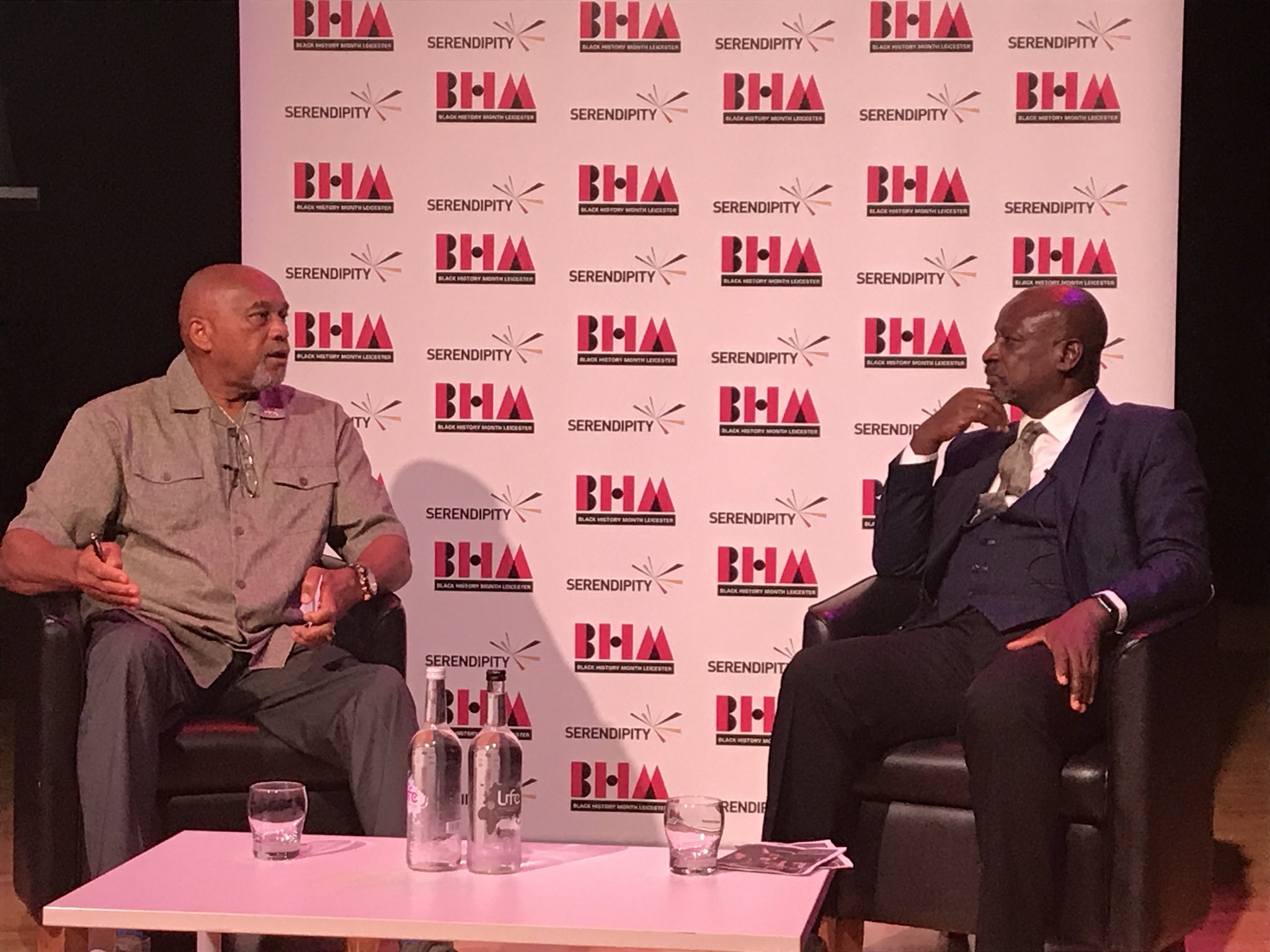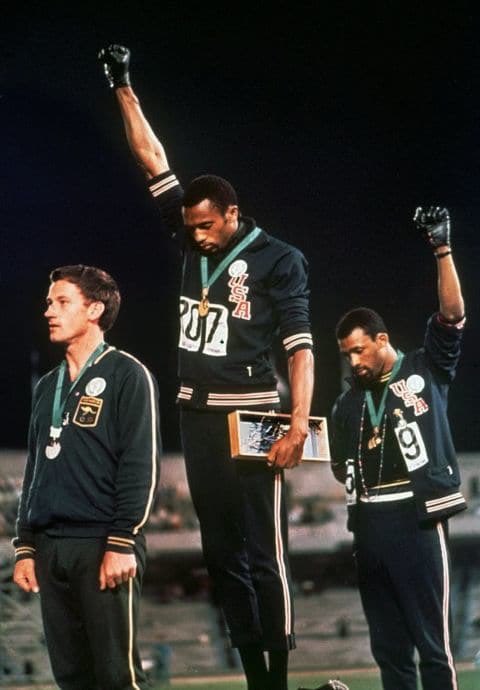The image of athletes Tommie Smith and John Carlos at the 1968 Olympics, fists raised on the winners’ podium, is one of the defining moments of the civil rights movement.
And last night Tommie was at De Montfort University Leicester (DMU) to talk about the events that led up to what he calls the ‘silent gesture’ – and how he coped with the appalling fallout which followed that saw them sent home from the Games, ostracised from sport they loved, vilified by critics and receive hate mail.

“People see it as a sacrifice, I view it as a responsibility,” he told a packed audience, “It was a sign for hope. I did it for humanity.”
The evening began with a standing ovation for the former Olympic sprinter, who held 11 world records in track and field at the same time. His time of 19.83 seconds at the 1968 Olympics set a world record in the 200m dash which stood for 44 years.
Tommie was at DMU as part of Black History Month in Leicester, organised by Serendipity Arts and Voice 4 Change.
A film about Tommie and John Carlos’ return to Mexico City in 2008 was shown which told the story of the protest and the Olympic Project for Human Rights (OHPR), which campaigned against racism and injustice. Tommie and John were both founding members of the cause.
The OPHR wanted to see Muhammad Ali’s title restored, more African-American sports coaches for young people, better housing for students and the removal of Avery Brundage as president of the IOC.
Ultimately, only one of their demands was successful, for South Africa and Rhodesia to be banned from the Games because of their treatment of black athletes.
Tommie said that he and John felt they had to use their position as world-class sports people to show how they felt about inequality. “I wanted to leave in history my belief in my country, but also the belief that it needs improvement.”

After returning to the US, they struggled to find work. Tommie became a teacher and coach and said he was proud of his time teaching and inspiring the next generation.
Questions ranged from how he coped with the aftermath of the 1968 Games to Colin Kaepernick taking the knee at NFL games – “Sometimes you have to take the knee. Sometimes you have to stand up to make people realise that, here I am” - to how he felt about Donald Trump - “he didn’t take first grade”.
When asked what advice he had for young people today, Tommie said: “People don’t believe in themselves enough. Kids don’t know who they are, they don’t understand that they can be themselves. Don’t try to live someone else’s life. Think for yourself.”
RELATED NEWS
Sunday Times names DMU University of the Year for Social Inclusion
Student who grew up in the care system thanks DMU staff for helping her to succeed
Global cohort of students begin FIFA Master course at DMU
Afterwards people had the chance to meet him personally. One of the first in the queue was Leicester man Dane Jefferies. He said: “I just want to shake his hand and say thank you. The sacrifices he has made, what they had to deal with for what they believed in – he is a legend.”
In the audience were students on the FIFA Master’s degree in sports management, which is taught at DMU, Switzerland and Milan.
Professor Martin Polley, who is director of the International Centre for Sports History and Culture (ICSHC) which runs the course, said: “All my life I have been teaching about this man. I can’t believe I am in the same room as him.”
Posted on Friday 12 October 2018